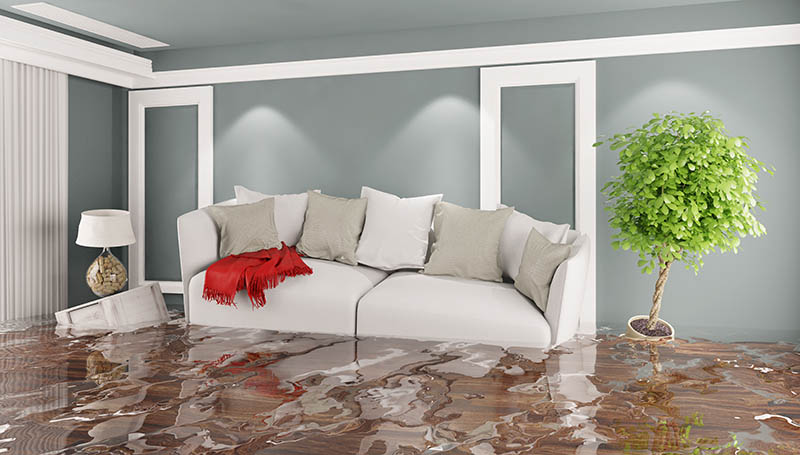Discover the Key Factors Contributing To Water Leakage Within Your Residence
Discover the Key Factors Contributing To Water Leakage Within Your Residence
Blog Article
The article following next on the subject of Common Water Leaks In House is rather compelling. Read it for yourself and see what you think of it.

Leaks not only cause waste of water however can additionally trigger unnecessary damages to your house and also promote undesirable natural development. Water leaks could go unnoticed since most of the pipework in our home is concealed. By recognizing and also looking for everyday circumstances that cause leakages, you can shield your residence from future leaks and also unneeded damages. Today, we will take a look at six leak causes that may be creating your pipelines to drip.
Elbowing in origins
Many water leakages begin outside the home rather than inside it. You may notice wet patches or sinkholes in your lawn, and also that might imply that tree origins are invading water lines triggering water to leak out.
Rusty water systems
This could be the cause of staining or warping on your water pipelines. If our plumbing system is old, take into consideration changing the pipelines given that they are at a greater risk of deterioration than the more recent models.
Malfunctioning Pipe Joints
The factor at which your pipes connect is regularly the weakest link in the waterline. Pipeline joints can deteriorate gradually, resulting in water leaks. The majority of pipe joints are not quickly noticeable. If you have loud pipelines that make ticking or banging sounds, especially when the hot water is switched on, your pipe joints are most likely under a lot of pressure. It is a good idea to have your plumber evaluate your system annually.
Instantaneous temperature changes.
Severe temperature level modifications in our pipes can create them to broaden and get suddenly. This development as well as contraction might cause splits in the pipes, especially if the temperature level are below freezing. It would be best if you kept an eye on just how your plumbing works. The existence of the formerly discussed circumstances often shows a high risk.
Poor Water Connectors
At times, a leak can be created by loose tubes and pipelines that provide your devices. In case of a water connections leak, you may see water running straight from the supply line or pools around your appliances.
Obstructed Drains
Blocked drains pipes may be aggravating and inconveniencing, but they can occasionally end up causing an overflow bring about burst pipelines. Maintain getting rid of any type of materials that might drop your drains pipes that can clog them to avoid such troubles.
All the above are sources of leaks yet not all water leakages arise from plumbing leakages; some leaks may come from roofing system leaks. All leaks must be repaired promptly to prevent water damage.
Leakages not just cause waste of water but can also trigger unnecessary damage to your home and also advertise unwanted natural growth. By looking and also understanding for day-to-day circumstances that create leaks, you can shield your house from future leakages and also unnecessary damage. Today, we will look at 6 leakage causes that may be causing your pipelines to leak.
At times, a leak can be triggered by loosened hoses as well as pipelines that supply your appliances. In situation of a water links leak, you might notice water running directly from the supply line or puddles around your devices.
How To Check For Water Leak In Your Home
How To Check for Leaks
The average household's leaks can account for nearly 10,000 gallons of water wasted every year and ten percent of homes have leaks that waste 90 gallons or more per day. Common types of leaks found in the home are worn toilet flappers, dripping faucets, and other leaking valves. These types of leaks are often easy to fix, requiring only a few tools and hardware that can pay for themselves in water savings. Fixing easily corrected household water leaks can save homeowners about 10 percent on their water bills.
To check for leaks in your home, you first need to determine whether you're wasting water and then identify the source of the leak. Here are some tips for finding leaks:
Take a look at your water usage during a colder month, such as January or February. If a family of four exceeds 12,000 gallons per month, there are serious leaks.
Check your water meter before and after a two-hour period when no water is being used. If the meter changes at all, you probably have a leak.
Identify toilet leaks by placing a drop of food coloring in the toilet tank. If any color shows up in the bowl after 10 minutes, you have a leak. (Be sure to flush immediately after the experiment to avoid staining the tank.)
Examine faucet gaskets and pipe fittings for any water on the outside of the pipe to check for surface leaks.
Undetected water leaks can happen without the home or business owner even realizing. If you suspect a water leak, but not able to find the source. It is time to contact a professional water leak detection service, The Leak Doctor.
How To Find a Water Leak In Your Home
https://www.leakdoctor.com/blog/How-To-Check-For-Water-Leak-In-Your-Home_AE197.html

I'm just very focused on How Fast Water Damage Can Ruin Your Home and I hope you enjoyed reading our post. If you please take a moment to promote this blog post if you appreciated it. I love reading our article about How Fast Water Damage Can Ruin Your Home.
Quote Report this page